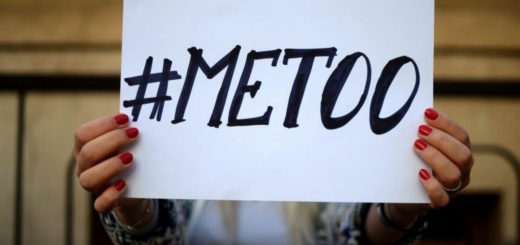One Order of Just Desserts, Hold the Mala Fides Requirement
Over the past two decades, academics and judges have debated the issue of awarding damages for violations of the Canadian Charter of Rights and Freedoms in the absence of mala fides. It took the threat of a dessert ambush to get the matter to the SCC.
Back in June, leave to appeal was granted for City of Vancouver v. Alan Cameron Ward, 2009 BCCA 23. In 2002, Mr. Ward was arrested and detained for over four hours by the Vancouver police. The police had wrongly identified him as a suspect in a plot to pie former prime minister Jean Chretien. Mr. Ward’s car was seized for the purpose of investigating the assault or attempted assault. The situation worsened for Mr. Ward when corrections officers ordered him to remove all of his clothing except his underwear. Ultimately, the police conceded that there was no basis upon which Mr. Ward could be charged for assault or attempted assault.
At trial, Mr. Ward successfully made Charter claims against the City of Vancouver and the province of British Columbia. Tysoe J. of the British Columbia Supreme Court ordered the City to pay damages in the amounts of $100 and $5000 for the unreasonable search of his car and false imprisonment, respectively. The court also ordered the Province to pay $5000 in damages stemming from the strip search, which was done in contravention with the detention center’s policies. All parties appealed Tysoe J.’s decision.
The Province argued before the BCCA that Tysoe J. erred by awarding damages for a Charter violation in the “absence of a commission of a tort, bad faith, abuse of power, negligence or wilful blindness on the part of the corrections officers”. The Province attempted to extend the mala fides requirement that exists for wrongly-exercised statutory discretion to Charter violations. Since this proposition has only been applied to statutes, the Province boldly argued that “the Charter is a statute to which the same rule must apply.” The Charter is not a mere statute; it is a bill of rights that forms part of Canada’s constitution. A separate regime has developed for the sole purpose of enforcing Charter rights against government actors. Importing a mala fides requirement into this regime would have the contradictory effect of immunizing government actors against the broad remedial powers of the courts under s. 24(1) of the Charter. As well, it would be unfair to force successful complainants to jump through an additional hoop in order to be compensated.
Bringing the Lower Courts in Line
Whereas trial courts have been willing to forgo the mala fides requirement, the appellate courts have taken conflicting positions on the issue. A case in point is Hawley v. Bapoo (2005), 76 O.R. (3d) 649 (Supt. Ct.), which was used by Tysoe J. to support awarding damages to Mr. Ward. In Hawley, Mr. Bapoo was assaulted by police officers whom were found to have acted without mala fides. According to Ducharme J.,
[The] requirement of mala fides, which has been imposed in some cases, is properly understood as a function of the qualified immunity given to government actors relying on legislation subsequently declared to be unconstitutional or judicial authority that is subsequently overruled. Outside of the qualified immunity context, proof of a state of mind independent of the Charter violation is not a necessary precondition for the awarding of Charter damages.
In Hawley, the police officers were found to be liable because their actions were not pursuant to any law declared unconstitutional.
Low J.A., writing the BCCA’s majority decision in City of Vancouver, considered Hawley in the context of the SCC decision in Mackin v. New Brunswick (Minister of Finance), [2001] 1 S.C.R. 405. In the absence of unconstitutional legislation, Low J.A. properly upheld Tysoe J.’s order. Yet, while Mr. Ward’s desired result was achieved, the decision falls short of providing certainty on the mala fides requirement. Instead of deciding whether such a requirement exists, Low J.A. focused more on the absence of unconstitutional legislation. A SCC pronouncement on City of Vancouver will bring much needed consistency to the lower courts.
Low J.A. did not consider the appeal in Hawley when deciding City of Vancouver. Yet it is interesting to note that when Hawley made it to the Ontario Court of Appeal in 2007, that court had already decided Ferri v. Ontario (Attorney General), 2007 ONCA 79. LaForme J.A. held in Ferri that mala fides was required for a constitutional tort. In Hawley, the Ontario Court of Appeal reversed Ducharme J.’s award of damages to Mr. Bapoo.
Balancing Individual Interests with Public Policy Concerns
As with many cases, public policy will play a key role in the SCC’s decision. The dissent in City of Vancouver, written by Saunders J.A., provides a valuable discussion on the public policy consequences of adopting a mala fides requirement. In support of a mala fides requirement, she points out that awarding damages to correct mistakes made in good faith will not encourage deterrence. The public will have to fund the costs of these seemingly purposeless awards. Saunders J.A. also brings up the possibility of individuals falling back on Charter claims to seek damages where their common law tort claims fail. These are valid policy concerns, and the challenge for the SCC will be to balance them with the equally valid goal of providing successful complainants with access to appropriate remedies.







Join the conversation